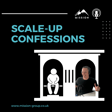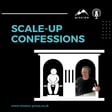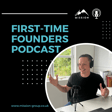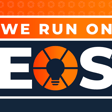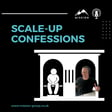
Getting employees ‘in the game of business’ by sharing numbers and profits
Ryan Markewich is a business coach and a Great Game of Business certified practitioner. Having run a successful landscaping company for over 29 years, he’s passionate about teaching other owners how to create cultures of ownership, accountability, and transparency that drives performance and profits.
In this episode of the First-time Founders Podcast, Ryan shares his knowledge and skills in Open Book Management, a proven system that empowers employees to think and act like owners, and aligns them with the company's goals and vision. This is a ‘must listen’ if you want to increase your profits, have more time for yourself, and find enjoyment in the process along the way.
Interested viewers can reach Ryan via https://www.linkedin.com/in/ryan-markewich/ and Rob (https://www.linkedin.com/in/robertliddiard/) at Rob@mission-group.co.uk (or to book some free time with Rob, visit https://www.eosworldwide.com/rob-liddiard). You can buy a copy of the Great Game of Business via Amazon here: https://amzn.eu/d/5Lyo2xe.
